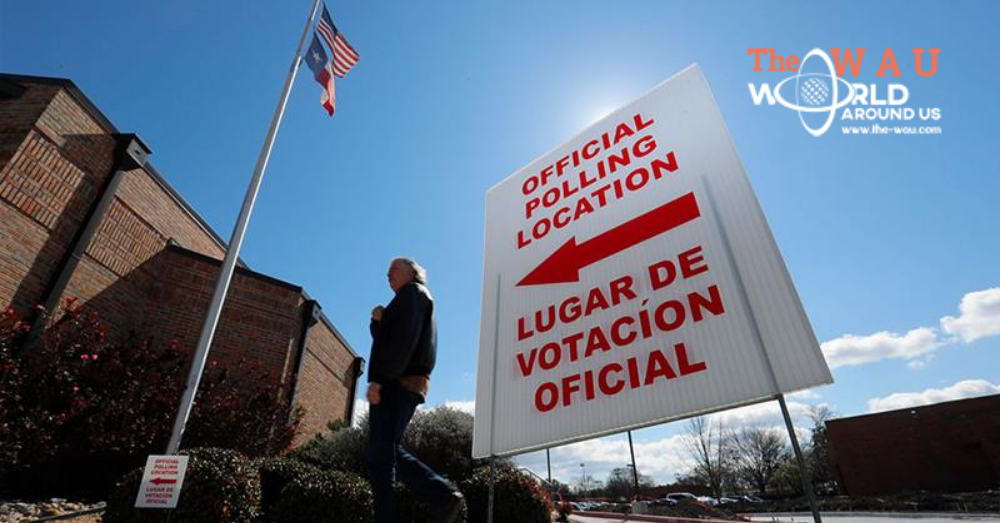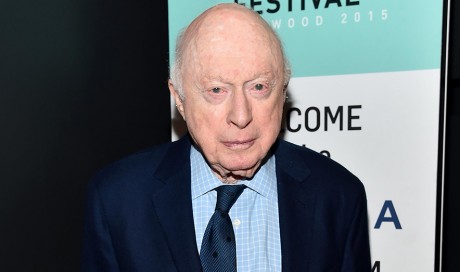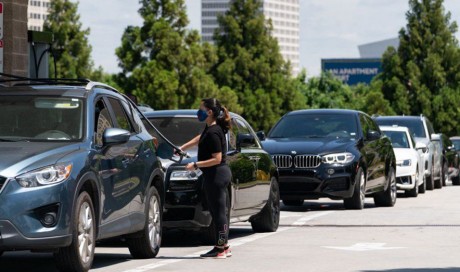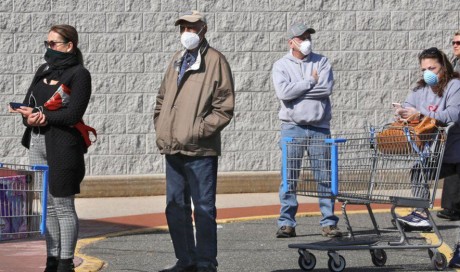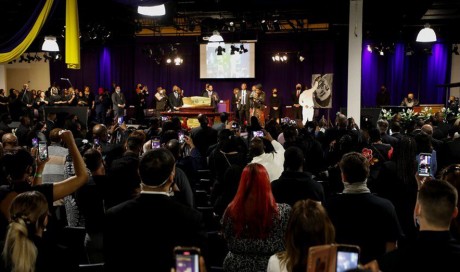Practically speaking, the race for the Democratic nomination for president of the United States has been little more than a show until now. None of the early voting states offered much in the way of delegates for the candidates (barely 4 percent of the total), and each have their own idiosyncrasies that make them not terribly good bellwethers for how the rest of the country will vote.
But that all changes on March 3, so-called "Super Tuesday". Voters go to the polls in 14 states and one territory, American Samoa. Also voting are Democrats Abroad, the overseas wing of the Democratic Party, though there have been reports that coronavirus lockdowns in various countries may make its efforts to get-out-the-vote impossible. Overall, millions of US citizens will turn out to show their preference for one Democratic candidate or another, and a race that until now has been somewhat murky could clear up considerably.
Here are six things anyone paying attention needs to know about Super Tuesday:
1. When did Super Tuesday become a thing?
Super Tuesday started in the 1980s when several states became fed up with the lack of influence they had over the nomination process and banded together to hold their primary on March 13, 1984. The New York Times dubbed it "super Tuesday" (without the capitalisation) and called it "the largest single harvest of convention delegates of the campaign".
In 1988, a number of southern states - Texas, Georgia, and Florida among them - did it again, holding their primaries en masse. This time, they were angry about the left-of-centre candidates that had risen to the top of the Democratic scrum in 1984 and wanted to change that. The tactic did not work. That year, Massachusetts Governor Michael Dukakis was nominated by the Democrats and lost to George HW Bush in the general election.
Today, Super Tuesday is more diverse geographically. It is less about one region or another swaying the process and more about every state wanting more influence over the election. No one wants to hold a primary after the decision of who will be the nominee has already been made because a candidate has already secured enough delegates to lock down the race.
2. Why do they call it Super Tuesday?
Super Tuesday is, hands down, the second-most important day on the US election calendar, behind only the first Tuesday in November when the presidency itself is decided. Some 1,357 delegates are at stake on the day, more than a third of all the delegates outstanding and not far from the 1,991 delegates a candidate needs to secure the nomination on the first round of balloting at the convention.
This year, it's even more super than usual in terms of delegates than in the past. California moved its primary up from June, which is late in the process, to join the throngs on March 3. The most populous state in the nation is a delegate jackpot, with 30 percent, or 415, of all the delegates available on the day.
3. Which states are voting?
Alabama, Arkansas, California, Colorado, Maine, Massachusetts, Minnesota, North Carolina, Oklahoma, Tennessee, Texas, Utah, Vermont, Virginia.
In American Samoa, the vote is a caucus.
4. Why is Super Tuesday so important?
Aside from the math involving delegates mentioned above, Super Tuesday is also important because it can firmly establish a frontrunner. Or, it can splinter a campaign that already appears to have a frontrunner based on voting in the earlier states and breathe new life into a foundering campaign.
This year, internal divisions within the Democratic Party are making Super Tuesday is even more important than usual. Bernie Sanders was the clear frontrunner heading into Saturday's South Carolina primary, with a slight lead on delegates and a convincing lead in national polls, but Joe Biden's convincing win there changed everything. Sanders would love a big win on Super Tuesday to put some wind back in his sails.
Super Tuesday will also be the first real test for Michael Bloomberg. The former New York City mayor sat out the first four contests so Super Tuesday is the first time we get a sense of whether the hundreds of millions of dollars he has spent on advertising so far can sway any actual voters as opposed to just polls and pundits.
So … Super Tuesday is super important for everyone.
5. When will we know the outcome?
Since the participating states are scattered across all four US time zones, results will come slowly - well into the night Tuesday. Vermont's poll closes first at 7pm Eastern time and California's last, at 8pm local.
California's actual vote count may not be known for days because mail-in ballots can be postmarked as late as Election Day itself. In 2016, because the race was so close, it took a month for California Democratic officials to count all of the votes and declare Hillary Clinton the winner over Sanders.
Television networks and news organisations, however, will not be content with waiting that long and will most likely start calling states based on exit polls and early results not long after the first polls close in Vermont. Expect to get a pretty good idea of how things are going for the various campaigns by about midnight Eastern.
6. What should people watch for?
First and foremost on most election-watchers minds will be how well Sanders performs with Biden now nipping on his heels. A strong showing Tuesday night will give him a commanding lead in the delegate count - not enough to clinch the nomination, but enough to make it even harder for his challengers to catch up. The distance between first- and second-place finisher in the delegate count at the end of the night could make it difficult for any of his challengers to close the margin in the remaining contests.
Also watch how well Elizabeth Warren performs in her home state of Massachusetts. Some polls put Sanders ahead of her there. If she can't win her own state, then odds are that she's going to have a hard time clinching the nomination.
Share This Post

